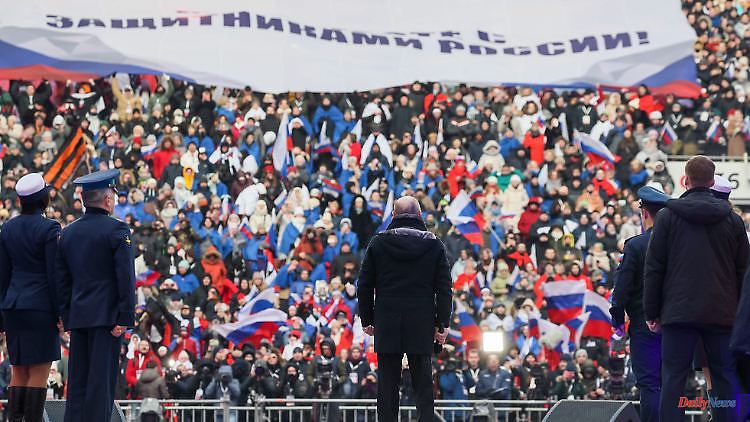What do Russians actually think about the war? Russian sociologist Lev Gudkov, who regularly polls opinions on the subject, says: "I was shocked by the level of support for this war." Russian society has proven to be "even more degenerate, even more submissive and passive".
The well-known Russian sociologist and head of the Levada Center Lev Gudkov told the journal Novaya Polsha that he was appalled by his compatriots' reaction to the invasion of Ukraine: "I was shocked by the level of approval to this war. I expected a much sharper and more negative public reaction to the declaration of war." But society has proven to be "even more degenerate, even more submissive and passive". According to Gudkow, one could even speak of an "amoral state" characterized by a mixture of "apathy, opportunism and cynicism."
Many people in Russia are unable to look at themselves soberly and resist the repressive regime. The sociologist from the only independent survey institute in Russia speaks of a "very small part of society" of maybe 10 to 12 percent that is really "strongly against Putin, against the war".
According to Gudkow, the fact that nothing changed during the war is partly due to state censorship of the media. In Russia, for example, no exact number of victims is published, but at most glossed over reports. "The topic is subject to total censorship," Gudkov told Novaya Polsha. So reports of dead and wounded could not really diminish support for the war. "The information that comes in through informal channels, mainly through relatives and friends of the dead, is vague and private. This man was killed, that man was killed, but a full picture of the extent of the casualties and casualties does not emerge. "
Gudkow also states that the opposition has been completely defeated and destroyed and that civil society has been smashed. "Every protest, every resistance is massively and shamelessly suppressed." In the absence of an opposition, he does not expect any radical changes in the future either. "It is more likely that after the defeat some kind of bickering will start within the elites. After Putin's departure there will be a bitter struggle for power, but that does not mean that the prospect of democracy will open up."
Gudkov's Levada Center conducts a monthly survey on the Russian war in Ukraine. Since its beginning, the picture has been "pretty much the same," according to the sociologist. The level of support for the war is 70 to 75 percent. At the same time, despite the high level of support for the war, there is no inner drive to fight. More than 50 percent of the Russians surveyed wanted a cessation of hostilities and the start of peace negotiations, which at first glance seems contradictory.
Juliane Fürst from the Leibniz Center for Contemporary History Research wrote in a guest article for ntv.de: "What appears to be contradictory does not necessarily indicate errors in the surveys. On the contrary, contradictory opinions are nothing new (not only) in Russia. In the Late socialism, Soviet politics and reality were largely rejected and criticized by the population. However, people continued to work in this system, orders were carried out. The absolute majority of Soviet citizens would have called themselves patriots even then."
The political scientist Tatyana Stanovaja told ntv.de last year in view of the high approval ratings for Putin's war: "I trust the polls by the Levada Center. The results match the polls by the state VTSIOM Institute."
Looking at today's Russia, Levada leader Gudkov describes himself as a "pathologist of a failed or dead democracy." You may have had a democracy once, but it is dead. "The only thing left for us is to diagnose and find out what caused the patient to die."
How long he can continue to work is unclear. It could also happen at any moment that the authorities knock on his door: "Of course we're waiting for them, there's no doubt about that. It could happen at any moment. As soon as we start showing a drop in approval ratings for Putin, we'll be eaten up and liquidated ."












